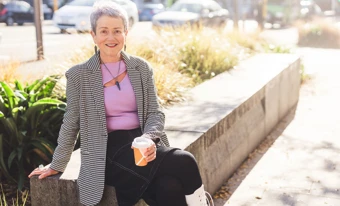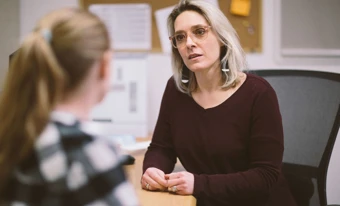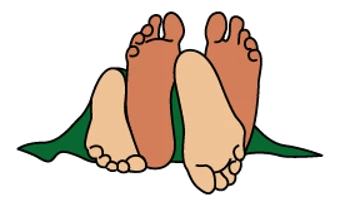
Mana Wāhine and menopause – the value in decolonising the conversation

Patriarchal structures and a colonial lens have all too often kept menopause and women’s health in the shadows. This has meant that many generations of women in Aotearoa have suffered with not only the symptoms of menopause, but also the western framing of menopause as a negative phase of a women’s life, which is in conflict to a Te Ao Māori perspective.
In Te Ao Māori (the Māori worldview), the concept of Mana Wāhine is the sacred power, dignity, and strength of women. Mana Wāhine is deeply rooted in whakapapa (ancestry), whenua (land), and wairua (spirituality) (Smith, 1992). Likewise, the concept of Ruahinetanga, which is recognised as a stage of life that signifies wisdom and leadership, is a concept that encapsulates a Te Ao Māori viewpoint of menopause. This strength-based viewpoint not only brings value for wāhine experiencing menopausal symptoms, it also recognises this age and stage in a way that supports ongoing connection. Menopause, within this framework, is not a loss but a sacred transformation. There is of course Iwi diversity in thought, understanding, and practice, however central to all is the understanding and valuing of Mana Wāhine (Pihama, 2020; Bullivant et al, 2022).
Menopause is not a loss, but a sacred transformation. It’s understood as a return of life-giving energy to oneself, signifying a new phase of leadership and connection to atua (spiritual beings). Women in this stage embody a heightened ability to guide, teach, and protect their whānau (family) and hapū (subtribe).
(Bullivant et al, 2022; Pihama, 2020; Smith, 1992).
It’s crucial we recognise Te Ao Māori in order to address the ongoing inequities that Wāhine Māori face within the health system, and provide a strength-based framework to address a naturally occurring stage of a women’s life. By normalising menopause as a journey to wisdom, leadership, and by supporting cultural practices that include reclaiming links with whenua and atua, and challenging colonial narratives that are shame-filled, we can provide a space that values Whaea/Taua/Kuia and provides best practice care.
Menopause Wellbeing is a service that values decolonising the menopause conversation. We take a broad, holistic approach and understand the vital roles and responsibilities that wāhine have within their whānau, and we strive to provide a service that meets the needs of your whānau and you. We acknowledge that Menopause Wellbeing is a private service, however the pūtea raised by this service will support the provision of Sexual Wellbeing Aotearoa services to those who need it.
So join us in decolonising the conversation about menopause.
References
Bullivant Ngati Pikiao, K., McClunie-Trust, P., & Syminton Te Ātiawa, K. (2021). A meta ethnography of the cultural constructs of menopause in indigenous women and the context of Aotearoa/New Zealand. Health Care for Women International, 43(10–11), 1197–1217. https://doi.org/10.1080/07399332.2021.1923717.
Pihama, L. (2020). Mana Wahine: Decolonising Gender in Aotearoa. Australian Feminist Studies, 35(106), 351–365. https://doi.org/10.1080/08164649.2020.1902270.
Smith, L. (1992). Māori Women: Discourses, Projects, and Mana Wahine. In Middleton, S., & Jones, A. (1992). Women and education in Aotearoa. 2 / edited by Sue Middleton and Alison Jones. Bridget Williams Books.


